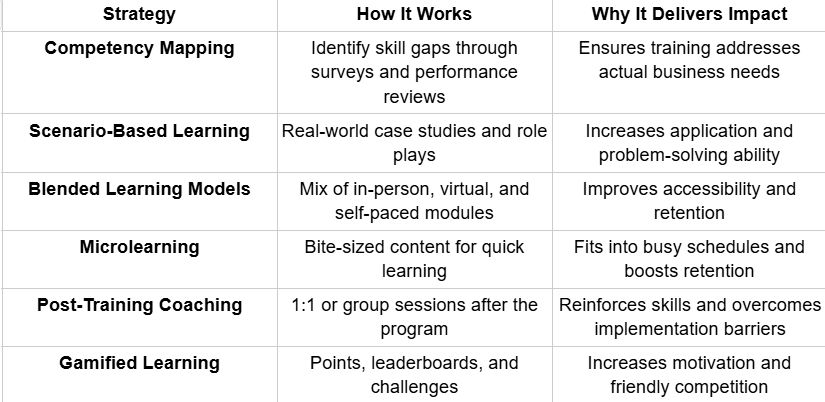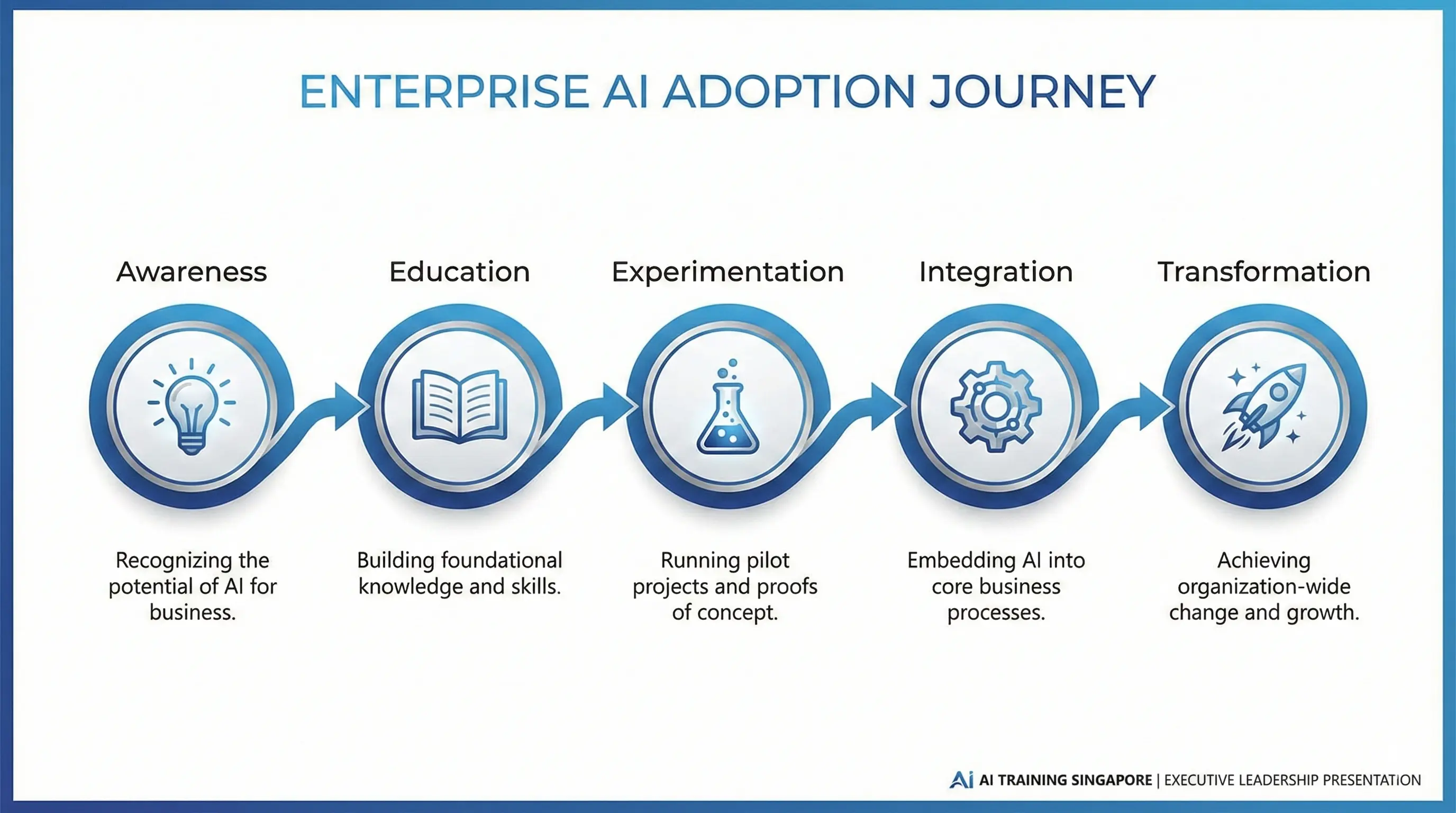Introduction – Why Business Training Is a Growth Engine, Not a Cost
In today’s competitive economy, business training is no longer about ticking compliance boxes or running generic workshops. The most successful companies in Singapore treat training as a strategic investment—a way to boost productivity, improve collaboration, and equip teams for future challenges.
When done right, business training doesn’t just change skills—it changes behaviours, mindsets, and bottom-line results. And the difference between “attending training” and “transforming performance” often comes down to how it’s designed and delivered.
Section 1: What Makes a Business Training Program Truly Effective?
The best business training programs share four core traits:
Strategic Alignment – Tied directly to organisational goals.
Relevance – Tailored to industry challenges and the participants’ roles.
Interactive Delivery – Using activities, simulations, and case studies to drive engagement.
Sustainability – Follow-up tools and support to reinforce learning.
Without these elements, even the most polished training will fade into “good ideas” that never get applied.
Section 2: Insights from Singapore’s Leading Corporate Trainers
The Role of the Trainer
Top corporate trainers in Singapore—like award-winning speakers, industry specialists, and transformation consultants—share several traits:
Industry Expertise: Real-world experience in business, leadership, and execution.
Cultural Awareness: Understanding Singapore’s multicultural workforce dynamics.
Content Adaptability: Ability to adjust on the spot based on participant needs.
Impact Focus: Clear metrics and action plans to measure outcomes.
Section 3: Proven Business Training Strategies That Drive Results

Section 4: Aligning Business Training with Organisational Goals
Training must link directly to your KPIs. For example:
Sales Growth Goals: Focus on consultative selling, negotiation, and customer experience.
Productivity Goals: Time management, process optimisation, and digital tool mastery.
Leadership Pipeline: Leadership development, decision-making, and team engagement.
When training addresses these goals, it stops being an expense and becomes a measurable driver of growth.
Section 5: Case Studies – Measurable Results from Effective Business Training
Multinational Tech Company: Increased cross-department collaboration by 32% after a leadership and communication program.
Financial Services Firm: Achieved a 21% boost in client acquisition through a targeted sales mastery program.
Retail Group: Reduced employee turnover by 18% after implementing a branded customer experience and culture transformation program.
Section 6: The Future of Business Training – Trends to Watch
AI-Enhanced Learning: Personalised learning paths and AI-powered coaching tools.
Hybrid Skills: Combining technical expertise with human skills like empathy and influence.
Continuous Learning Culture: Moving away from “one-off” workshops to ongoing learning journeys.
Conclusion + Call-to-Action
The most effective business training strategies are not about what’s easiest to deliver—they’re about what drives lasting change. Whether your goal is to grow sales, sharpen leadership, or improve team collaboration, working with the right trainer can be the catalyst your business needs.
Partner with Dr. Jerome Joseph – Global Brand Thought Leader, Certified Speaking Professional, and one of Asia’s most sought-after corporate trainers. With 30+ years of experience across 40 countries and over 1,000 brands—including Fortune 500 companies—Jerome designs high-impact, customised training programs that deliver measurable results in leadership, sales, culture, and customer experience.
📩 Let’s create a business training strategy that accelerates your team’s performance and your organisation’s growth. Contact Dr. Jerome Joseph
Trending Now - AI-Powered Learning: How Keynote Speakers Can Elevate Corporate Training

.avif)




